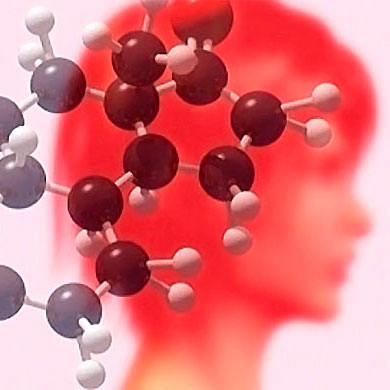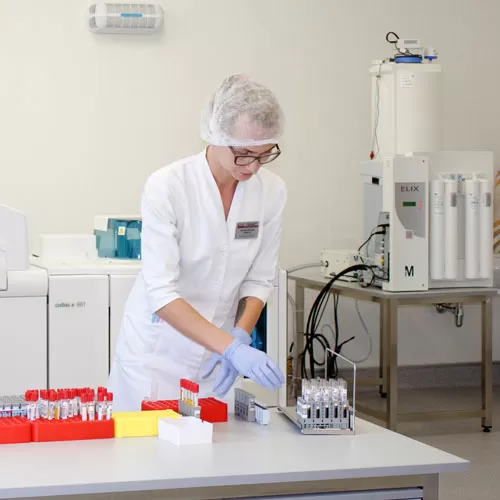
Hormonal studies are a set of laboratory diagnostic procedures aimed at the examination of presence in the blood and concentration of a number of hormones produced by human glands.
INDICATIONS FOR HORMONAL STUDIES
Hormonal blood studies include many special tests that target a specific hormone or hormone group generated by a certain internal secretion gland. Hormone levels in the blood may help to determine not only the general condition of the body, but also the status of specific organs and systems. An increased level of hormones or their deficiency may cause drastic changes within the body and thus result in severe disorders. The concentration of hormones in the blood may depend on the gender, age, condition and even on the time of day. Because of this, hormone tests are only taken at specific times. A comprehensive hormonal study offers the most complete view of the bodily status.
OUR LABORATORY PERFORMS THE FOLLOWING STUDIES:
Thyroid gland
- Thyroid stimulating hormone (TSH, or thyrotropin)
- Free thyroxine (free Т4)
- Free triiodothyronine (free Т3)
- Thyroperoxidase antibodies (TPO, or mircosomal antibodies)
- Thyroglobulin (TG)
The pituitary-gonadal system
- Follicle stimulating hormone (FSH)
- Luteinizing hormone (LH)
- Prolactin
- Monomeric prolactin
- Estradiol
- Progesteron
- Testosteron
- Androstenedione
- Sex hormone binding globulin (SHBG)
- Free testosterone index (computational method)
- Free testosterone (computational method)
The reproductive system marker
- Antimullerian hormone (AMH) is the marker of the ovarian reserve in women during the reproductive period and of the testicular function in prepuberal men. AMH is used for the diagnostics of patients’ ovarian reserves, and is the preferable bio-marker used for the assessment of ovary conditions in the majority of women.
The pituitary-adrenal system
- Adrenocorticotropic hormone (ACTH)
- Cortisol
- Saliva cortisol (the level of biologically active free blood cortisol is in equilibrium with the level of saliva cortisol, irrelevant of the concurrent saliva generation)
- Dehydroepiandrosterone sulphate (DHEA-S04)
The endocrine function of the pancreatic gland
- C-peptide
- Insulin (IRI)
- The HOMA index (an assessment of insulin resistance) (when ordering insulin and glucose)
Calcium phosphorus exchange and bone marrow metabolism
- Parathyroid hormone (parathormone)
- 25-OH vitamin D (vitamin D3)
- Osteocalcin
- Beta-cross laps
- Bone matrix formation marker P1NP (N-terminal type 1 procollagen propeptide, Total P1NP)
PREPARATION FOR HORMONAL RESEARCH
Rules for preparing a patient for blood donation for hormonal analysis, vitamins, tumor markers, markers of osteoporosis, infections, autoimmune diagnostics and allergy diagnostics
Rules for preparing a patient for an analysis to study the concentration of cortisol in saliva
HOW TO TAKE A TESTS
- At the reception, conclude an agreement for the provision of paid services (if you have a referral from a doctor, show it to the medical registrar)
- Pay the invoice at the cash desk of the RCMC or via ЕРИП (SSIS: Single Settlement and Information Space)
- Get tested.
Test material is accepted according to schedule: Friday through Monday, from 7:30 till 11:00, Saturday from 9:00 to 11:00 (on Saturday, tests are accepted by appointment through the Contact Center).




